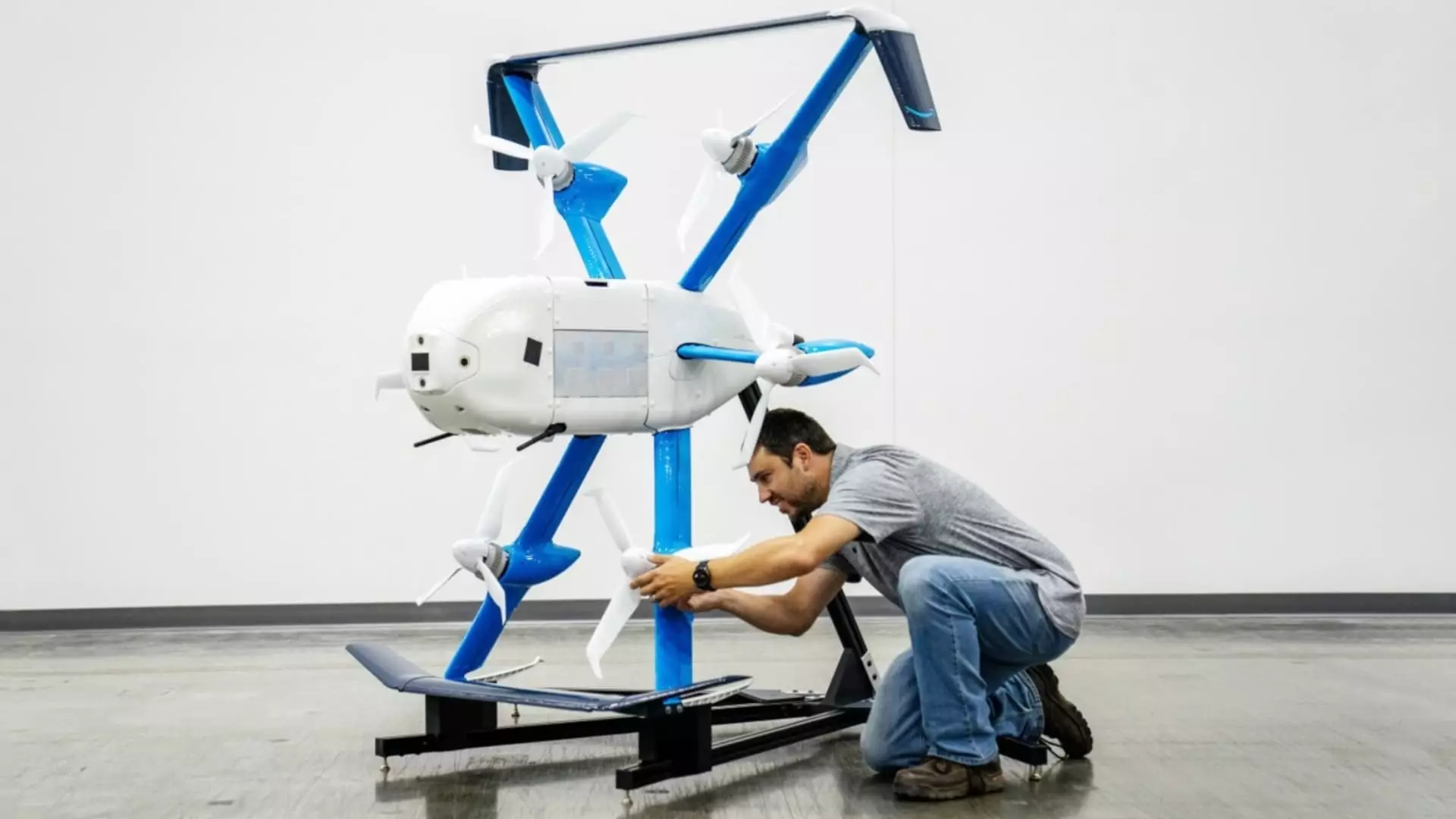In a groundbreaking move that once again positions Amazon at the forefront of technological innovation, the company has reinitiated its drone delivery service, known as Prime Air, in two states after a brief hiatus. This re-launch is not merely an operational restart; it represents a significant milestone in the logistics and delivery industry. After suspending the service in January due to concerns regarding the drone’s altitude sensor—an issue reportedly caused by environmental dust—Amazon’s commitment to safety and efficacy has proven crucial. Although the company clarified that they had not encountered actual safety issues, the proactive halt speaks to a corporate ethos that prioritizes trust and reliability.
The Journey to Compliance and Safety
Safety is more than just a talking point for Amazon; it is a foundational tenet upon which the Prime Air program is built. Following a comprehensive software update on the MK30 drones—which addressed the altitude sensor anomaly and received a green light from the Federal Aviation Administration (FAA)—Amazon has indicated that they are back on the trajectory toward an ambitious goal of delivering 500 million packages annually by drone by 2030. This comeback reflects not only technological advancements but also a regulatory framework actively evolving to support new forms of delivery systems. With Prime Air now operational again in College Station, Texas, and Tolleson, Arizona, the anticipation of what’s next is palpable.
Consumer Expectations and Demand
Echoing the growing enthusiasm surrounding this innovative venture, Amazon’s spokesperson noted that demand has soared since the re-launch. Customers, now equipped with an effective delivery solution that claims packages can be delivered in under 30 minutes, represent the future of retail logistics. This is a vital aspect of Amazon’s strategy, which hinges on transforming delivery from an inconvenience into a seamless experience. The excitement around these expedient deliveries is bolstered by testimonials, such as that from David Carbon, an Amazon executive, who shared the swift delivery of ZzzQuil sleep medication. However, transparency regarding distances flown remains conspicuously absent.
A Decade in the Making
Amazon’s ambitious journey towards drone delivery began over ten years ago, catalyzed by founder Jeff Bezos’s visionary concept of drones delivering everyday items within minutes. Yet, despite the lofty ambitions, progress has been stymied by regulatory hurdles and operational challenges. Only two cities in the U.S. are now part of this pilot program, emphasizing the slow-paced reality of scaling such advanced technology. Additional setbacks, such as the recent shuttering of a test site in California and workforce cuts during cost-reduction initiatives, have added to the complexities of establishing a robust drone delivery network.
Technological Innovations: The MK30 Drone
The MK30 drone is touted as a significant step forward in Amazon’s drone technology, designed to operate quietly, a response to concerns from residents near delivery hubs. This innovation not only aims to silently integrate into everyday life but also bears witness to Amazon’s attentive approach to community dynamics. The decision to relocate drone hubs further away from populated areas is another nod to corporate responsibility. Yet, the memories of crashes during test flights remain in public domain discussions, and some questions linger regarding the reliability and safety of newer models.
Global Aspirations and the Road Ahead
With intentions of expanding drone delivery operations internationally, Amazon’s eyes are set on markets beyond U.S. borders, targeting regions like the U.K. This desire for growth aligns with a prevailing trend among tech companies to embrace more globalized frameworks. As Amazon navigates through regulatory mazes, welcomes government officials to its facilities, and builds out its infrastructure, the potential for drone technology could lead to transformative changes in how consumers receive goods worldwide.
Overall, Amazon’s re-establishment of drone deliveries marks a pivotal chance not just for the corporation but for an entire industry on the verge of revolution. It’s a reminder of how, despite hurdles and setbacks, relentless innovation and a commitment to safety can pave the way for what may very well become the future of delivery logistics.

